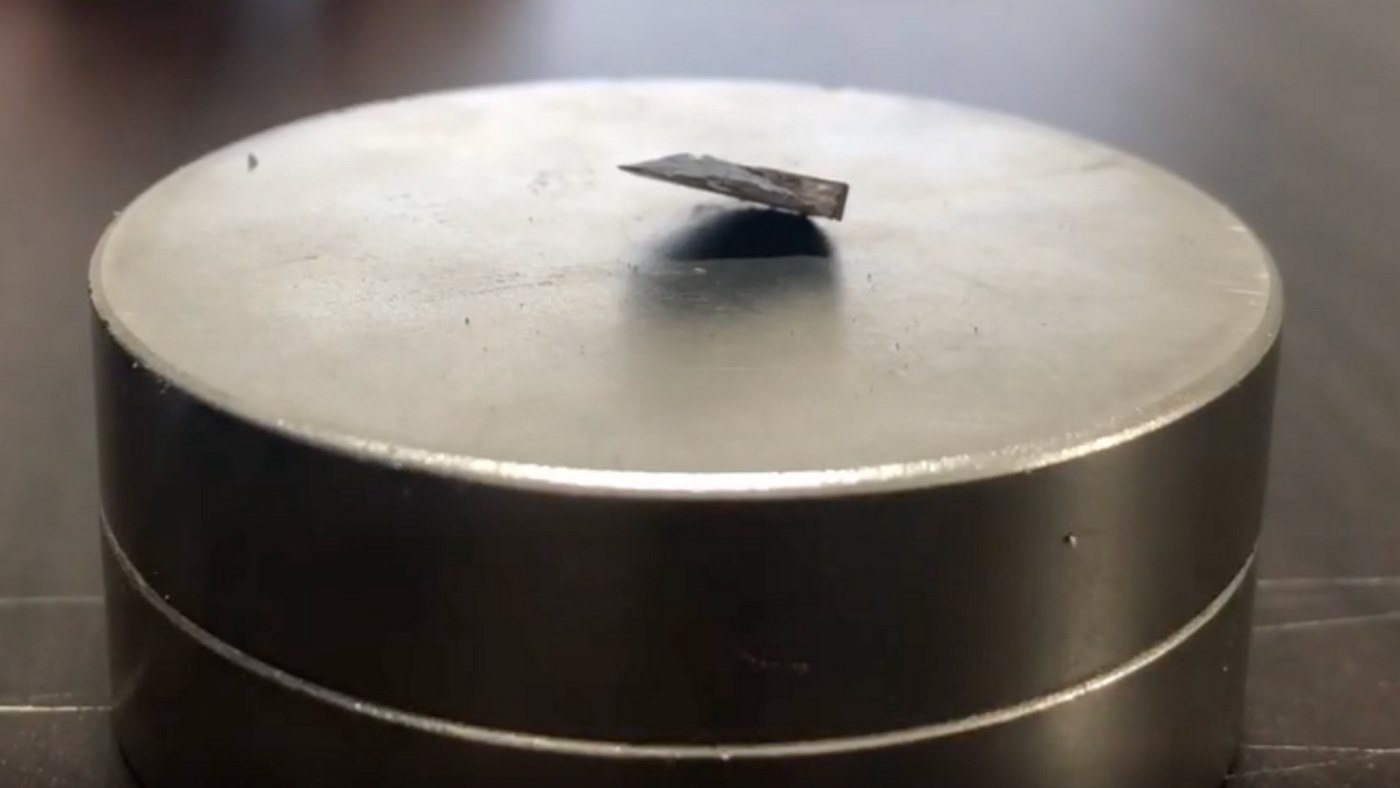
A rather interesting proposition. Does nature produce room temperature superconductors by itself and just where do we look?
The quick take home is that this is easily testable for any type of purified material and while we are at it, surely we actually need to know. We do have wonderful permanent magnets now to use in our labs and testing is a snap.
While at it we can measure magnetic effects as well.
We really need to test the thousands of odd materials proved up since the dawn of the industrial age to just see if we may well be missing something that nature did not.
If Replicated, New Physics Discovery Could Grant Levitation to Any Device via Ambient Pressure Magnetics
By Andy Corbley
-Aug 9, 2023
https://www.goodnewsnetwork.org/if-replicated-new-physics-discovery-could-grant-levitation-to-any-device-via-ambient-pressure-magnetics/
If a new discovery published by South Korean physicists on a pre-print server is proven through replication, it could be one of the most important discoveries in applicable physics.
That’s because the team believes they have discovered materials that act as “room-temperature, ambient pressure superconductors.”
That’s the physics term; the layman’s term would be utopian, science-fiction, or meriting the milestone to mark the 4th technological revolution—something that would change the world forever.
Understandably, there is extreme skepticism surrounding the two papers, including from their own authors. Sukbae Lee, one of the authors, stated that another author, Professor Kwon, published their experiments on the pre-print server Arxiv without consulting the other authors, and before they had been properly written, leading to skeptics in the broader community calling some of the data “sloppy” and “fishy.”
With that extraordinary caveat in place, let’s take a look at their findings. The team identified a lead-based compound called LK-99 which is supposedly a superconductor.
When electricity moves through a normal conductor like copper wire, electrons bump into each other which has the effect of a net loss of energy and an increase in heat dispersion into the material; hence why our laptops heat up when we use them on full power.
Superconducting wires made of niobium-titanium or niobium-tin, avail the passage of elections freely, without any disruption, allowing them to channel massive amounts of energy.
Superconducting magnets are powerful enough to levitate trains and contain plasmas within the reactor of a nuclear fusion device.
These materials however require extremely low temperatures, such as -100°C, to work as superconductors. LK-99’s party trick is that it can function at room temp. LK-99 is made in a baking process with the mineral lanarkite and copper phosphide, and the researchers claim it can induce magnetic levitation at pressures equal to those at sea level.
This would mean that cars and trains, skateboards and bicycles, could all potentially levitate via magnetism rather than rely on wheels. Nuclear fusion reactors wouldn’t need the many tons of conventional superconducting wires and expensive cooling systems.
The ITER fusion reactor in France for example, uses 124 miles (200 kilometers) of superconducting cables, kept at -452F (-269C) by the world’s largest cryogenic freezer.
A brilliant and brief report on this discovery/debacle by Singularity Hub reports that if LK-99 were truly capable of magnetic levitation then this video published by the researchers should show the whole sample rising above the magnet and remaining fixed to it via the “quantum lock” of the Meissner Effect, rather than just a part as seen in the video.
They offer the ‘charitable interpretation’ that the sample is simply impure.
What happens next will be fascinating to see: the authors have asked for independent peer review and replication of their findings to help restore their credibility.
“We’re cautious about these kinds of claims,” Dr. Mark Ainslie, a superconductors expert from King’s College London, told Sky News. “It would be fantastic, but extraordinary claims require extraordinary proof. We’re waiting to see what happens with the replication efforts going on at the moment.”
No comments:
Post a Comment